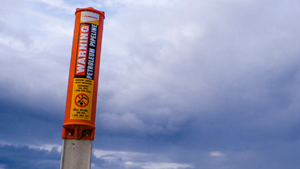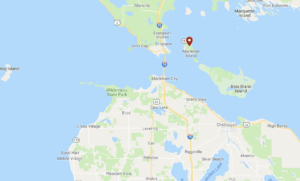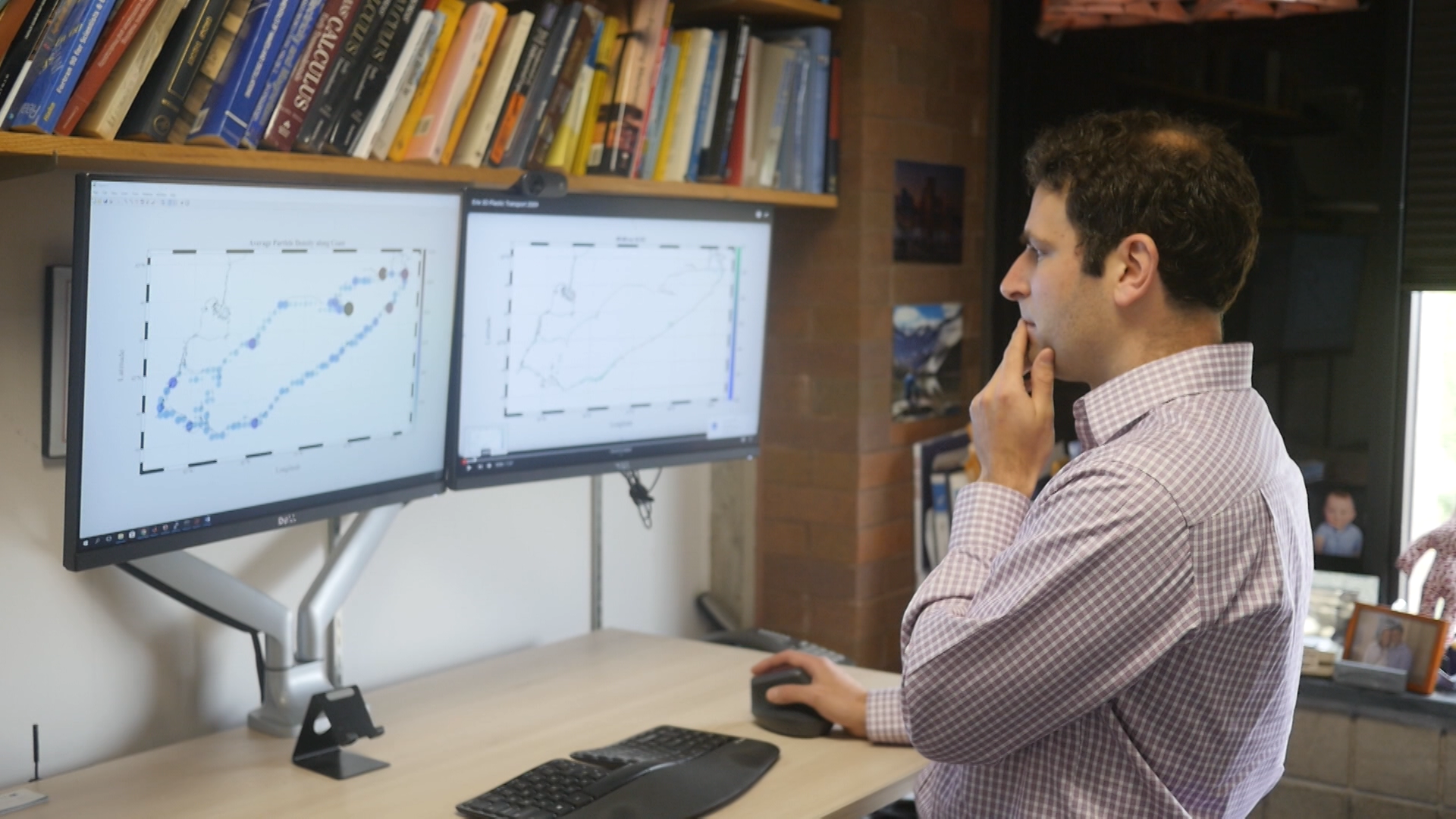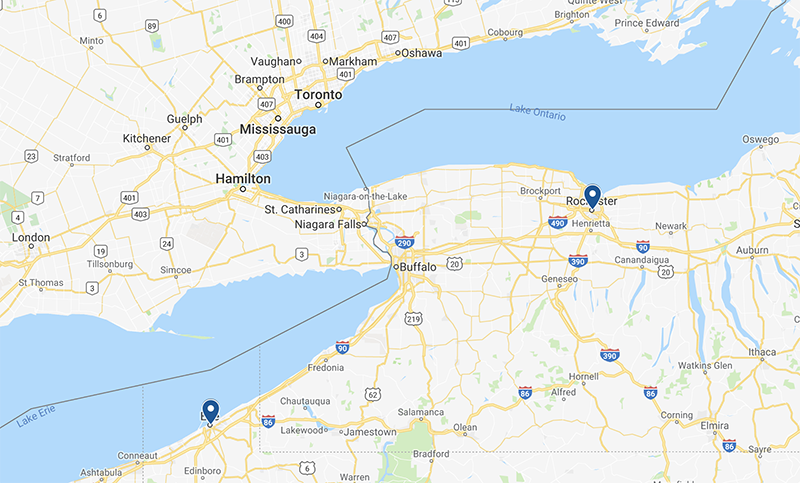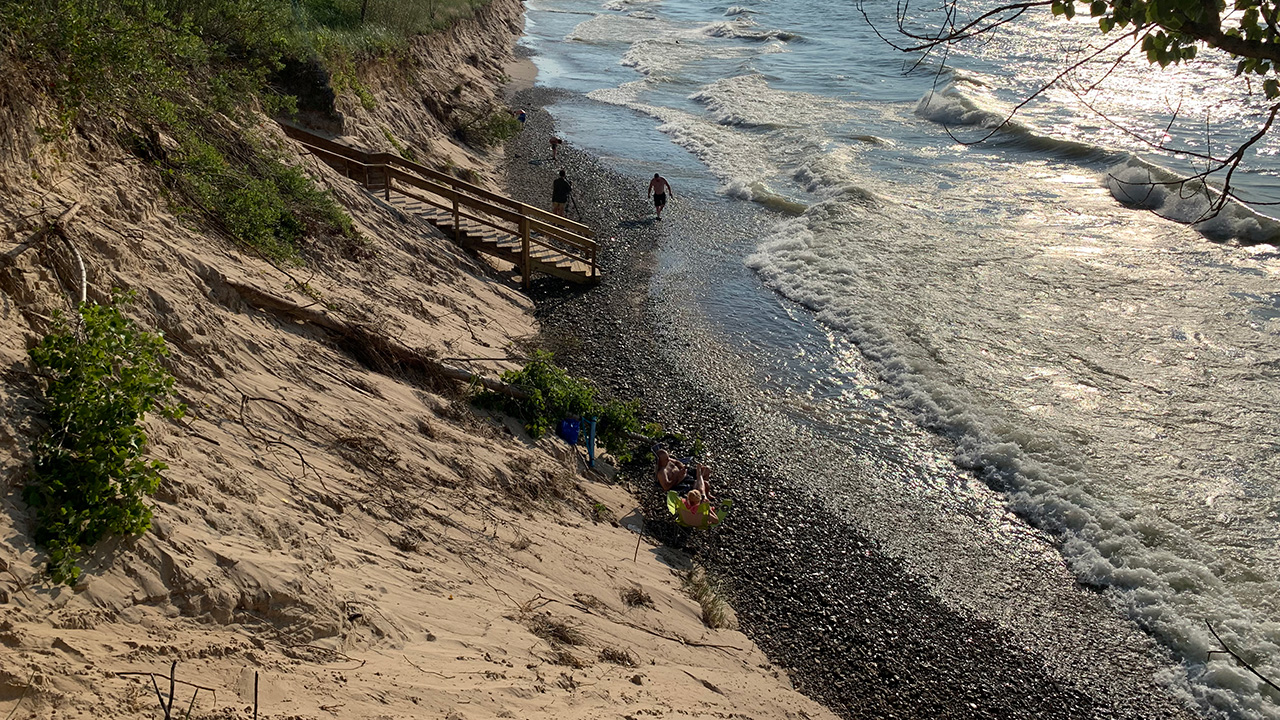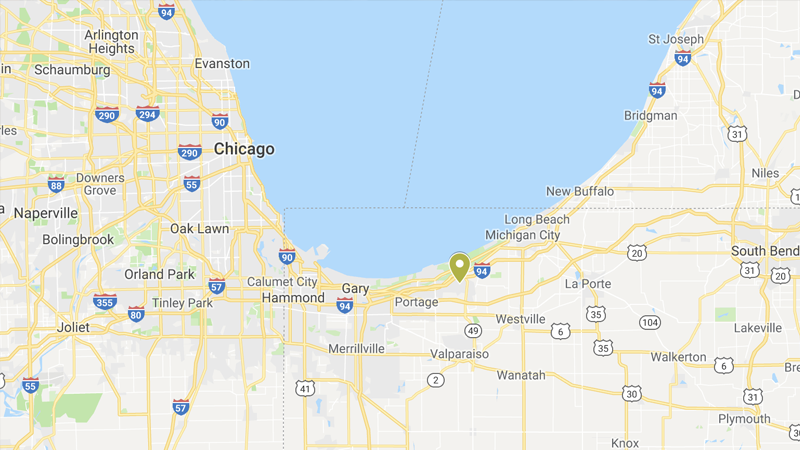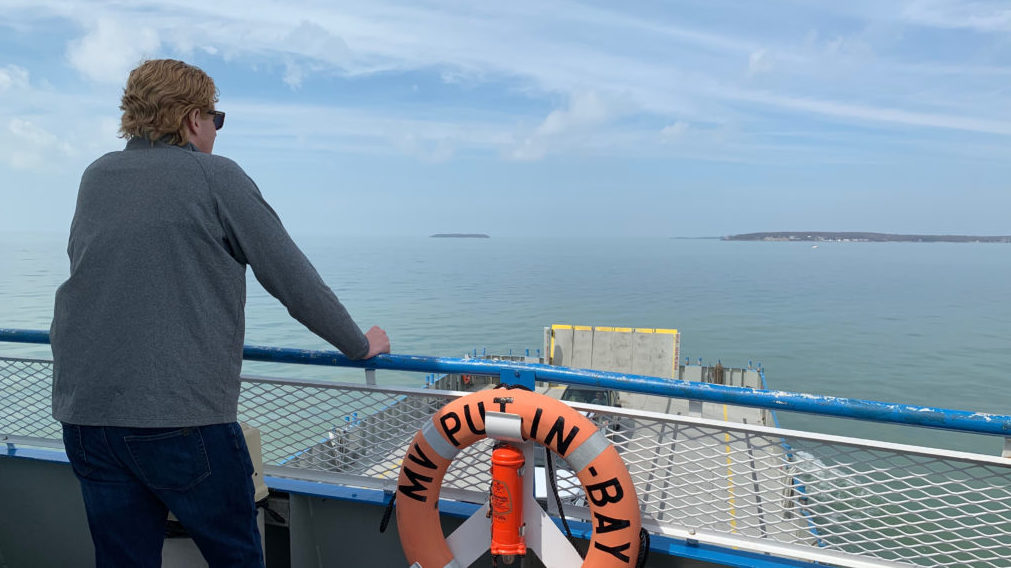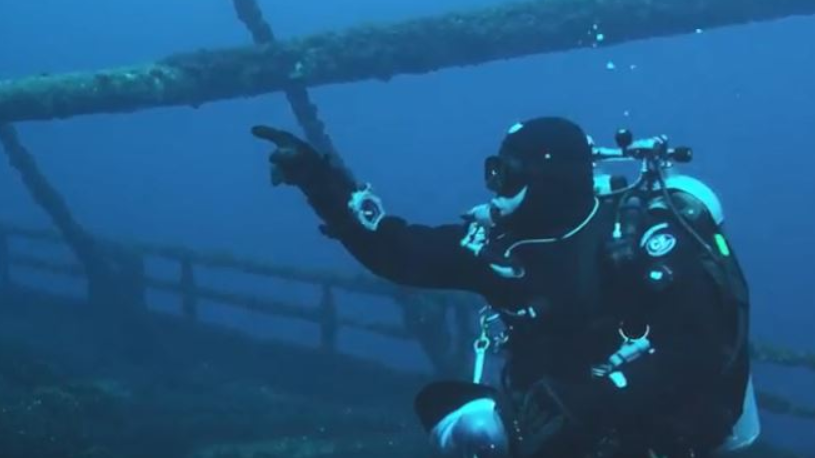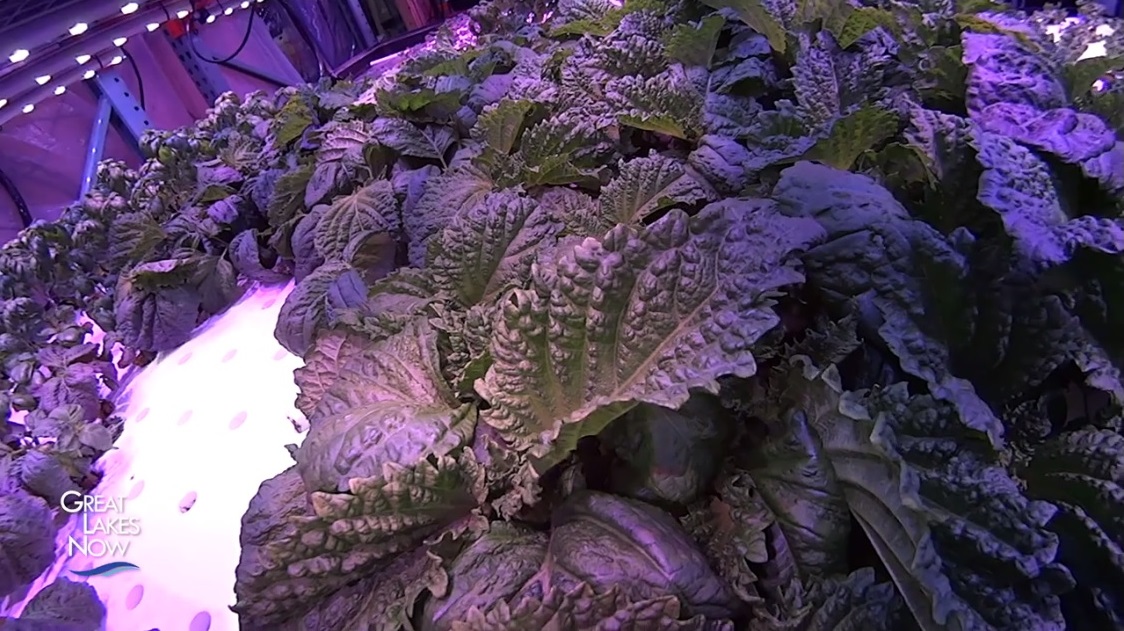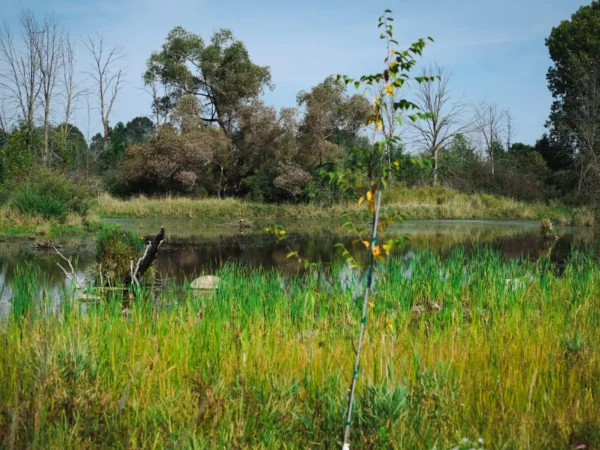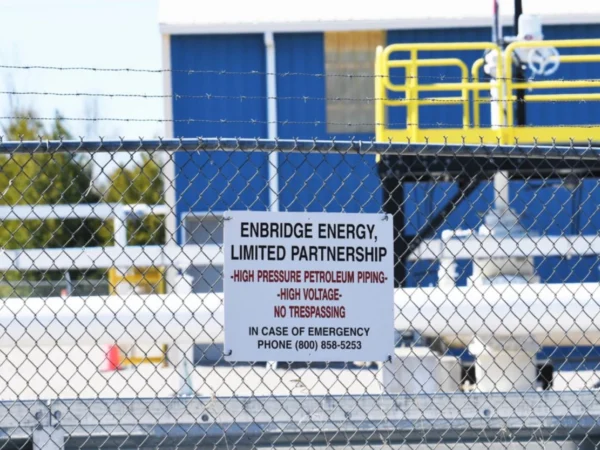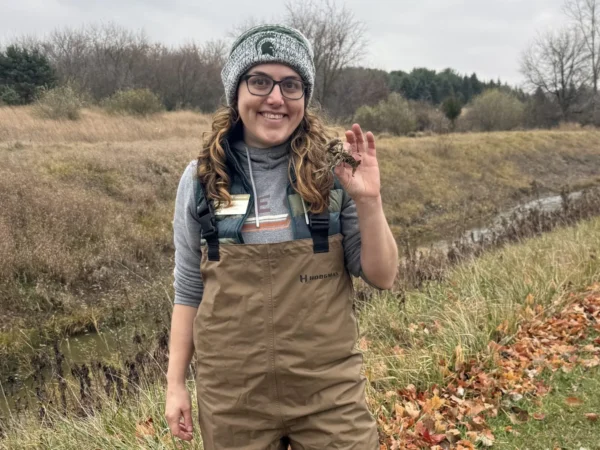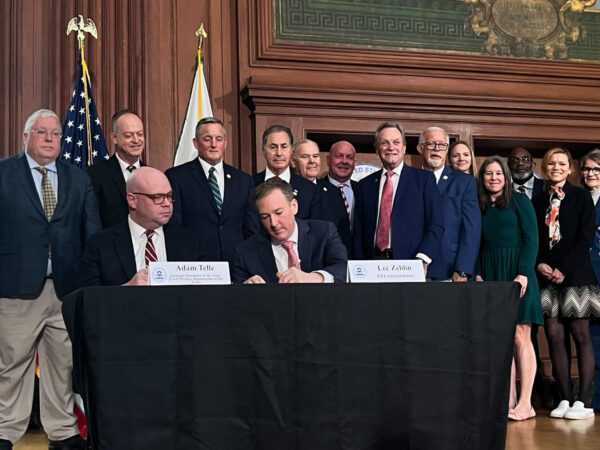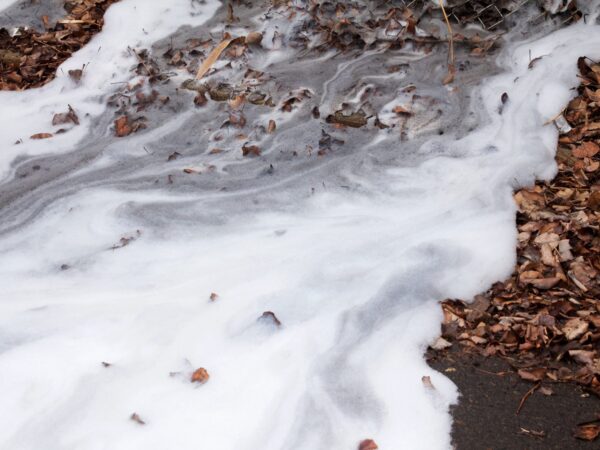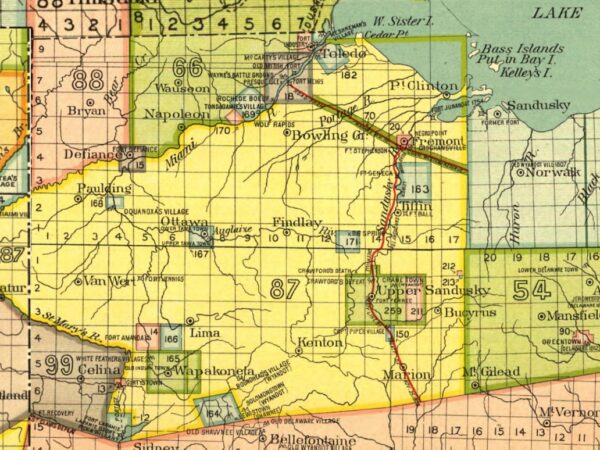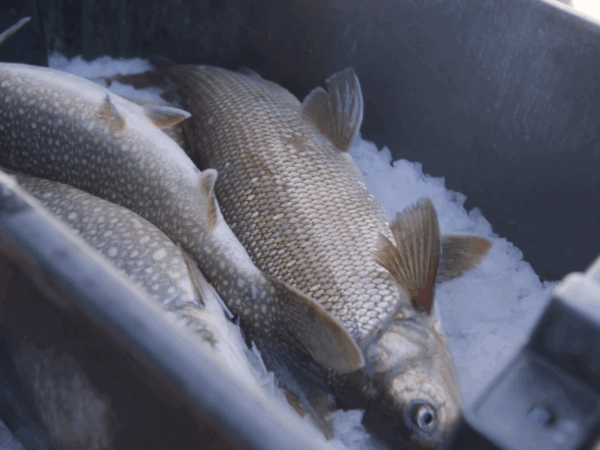Pipelines, Plastics and Parks
The fight over an oil-and-gas pipeline in the Straits of Mackinac went to the courts, and microplastics were detected in waters around the region. The newest U.S. National Park on Lake Michigan’s shoreline means increased visitors but not necessarily more protection against erosion, contaminants and native plant loss. Learn more about all these threats to our freshwater system in the fourth episode of the Great Lakes Now monthly show.
WHERE WE TAKE YOU THIS MONTH
Watch Live on DPTV
Tuesday, July 30 at 7:30 PM
STATIONS CARRYING THE SERIES
DPTV
Detroit, Michigan
WNED-TV
Buffalo, New York
WGVU-TV
Grand Rapids, Michigan
WNMU-TV
Marquette, Michigan
WCMU-TV
Mount Pleasant, Michigan
WNIT-TV
South Bend-Elkhart, Indiana
WCNY-TV
Syracuse, New York
WGTE-TV
Toledo, Ohio
WPBS-TV
Watertown, New York
This Month on Great Lakes Now
Click the tabs to read descriptions of each feature in Episode 1004.
Enbridge Line 5 Update
SEGMENT 1 | STRAITS OF MACKINAC
The oil-and-gas pipeline remains in the Straits of Mackinac. It’s helping meet some energy needs but also continuing to pose environmental risks if there is damage to it.
As Michigan Gov. Rick Snyder left office at the start of the year, the state had a deal with Enbridge Inc. for construction of a tunnel that would contain a replacement pipeline for the aging Line 5.
Now, a new group of Michigan politicians and the Canadian company are doing battle on multiple legal fronts, leaving the future of the tunnel uncertain and the risk of a spill still fully up for debate.
In a lawsuit, Enbridge seeks to enforce the tunnel agreement, but Michigan’s new Attorney General, Dana Nessel, wants that dismissed. And in another suit, Nessel filed to have the existing line shut down as soon as residents could have an alternative plan for their propane supplies that currently are delivered through the pipeline.
“The final say in all this is really up to the judges,” says Cheyna Roth, a Lansing-based Michigan Public Radio Network reporter.”
Here are more Great Lakes Now stories about Line 5:
- For a full history of Enbridge Line 5, watch Great Lakes Now’s Emmy Award-winning documentary “Beneath the Surface.”
- Read Enbridge’s June 2019 statement.
Microplastics in the Lakes
SEGMENT 2 | ROCHESTER, NY & ERIE, PA
Researchers in New York have been looking into plastics pollution in the Great Lakes as they try to grasp the scope and look for possible solutions.
Plastics pollution in the ocean has been the source of numerous studies and campaigns. Plastics pollution in the Great Lakes, on the other hand, has not been researched as much. And microplastics in the Great Lakes has been even less studied.
Researchers in New York are working to change that.
“What we have discovered over the last seven years is how prevalent they are,” said Sherri Mason, sustainability coordinator for Penn State Behrend, one of the first scientists to research the problem in the Great Lakes. “One plastic bag can form trillions of microplastics as it sheds in the environment.”
These microplastics — pieces of plastic smaller than 5 millimeters — end up in the water we drink, in the beer we brew, in the soil we walk on and even the air we breathe.
The solution?
“We cannot recycle ourselves out of the situation,” Mason said. “The solution to this is reduction… If we use less plastic, we find less plastic in the environment, it’s that simple.”
WCNY-TV produced this segment in part with support from a Great Lakes Now Local Station Production Grant.
Here are more Great Lakes Now stories about microplastics:
- Read about research being done into washing machine filters that could prevent microfibers, a form of microplastic, from draining into the Great Lakes.
- Learn about Michigan’s legislative back-and-forth on banning plastic bags.
The Newest National Park
SEGMENT 3 | SHORES OF LAKE MICHIGAN, INDIANA
As the Indiana Dunes area transitions from National Lakeshore to National Park, more visitors are enjoying its beaches and trails. Environmental threats may be increasing too.
To the staff — those khaki-clad park rangers in the iconic Smokey-the-Bear-type hats — the change didn’t mean much. Renaming the Indiana Dunes National Lakeshore to National Park did not mean more funding, administrative changes nor greater environmental protections.
But then the people came.
“We didn’t really realize how important it was going to be to the public, the higher profile, the number of people who are coming here,” says Bruce Rowe, park public information officer. “Literally the day that the change happened we started getting emails and phone calls from all over the country.”
Increased visitors could mean increased environmental threats, for example when people veer from the prescribed trails and trample grasses holding the sands in place. But park staff say they are working to minimize the threats from people — along with other potential dangers to the park’s ecosystem like invasive species of plants, industrial pollutants and increased lake levels.
Here are more Great Lakes Now stories about national parks:
- The Great Lakes National Park Service sites have been seeing increased tourism.
- Think you know your national parks? Take our quiz about sites in the U.S. and Canada.
- What do you know about Great Lakes parks and other national sites? Take our quiz about the region’s parks.
Have a question about the Great Lakes or life in the region?
Ask Great Lakes Now, and if we can answer it, we might loop it into our coverage so others can learn too.
Submit Your QuestionPrevious Episodes
The Premiere
Episode 1001
Life on a Lake Erie island, daily activity at a Chicago port, and a look at how Ann Arbor, Michigan deals with industrial chemicals in the city water supply.
Watch the ShowShips and Shipwrecks
Episode 1002
A 145-year-old Great Lakes mail delivery tugboat, life on a freighter, and shipwrecks in the Great Lakes’ only national marine sanctuary.
Watch the ShowFire, Fish and Food
Episode 1003
The 50th anniversary of Cleveland’s Cuyahoga River fire, Asian carp in the Great Lakes, and hydroponic farming in Detroit.
Watch the ShowFeatured Articles
Digital Credits
The Great Lakes Now Series is produced by Rob Green and Sandra Svoboda.


